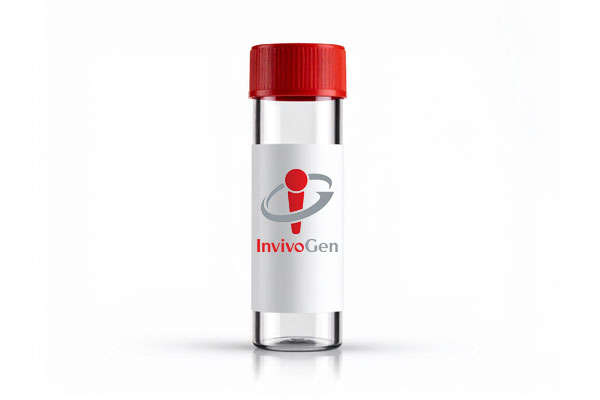
pUNO1-hEIF2AK2-DN
-
Cat.code:
puno1-heif2ak2-dn
- Documents
Expression-ready ORF Clones
Alias : PKR, PRKR, EIF2AK1
Eukaryotic translation initiation factor 2-alpha kinase 2.
Protein Kinase, Interferon-inducible double-stranded RNA dependent.
Dominant negative EIF2AK2
Protein kinase RNA-regulated (PKR), also known as Eukaryotic translation initiation factor 2-alpha kinase 2 (EIF2AK2,) a ubiquitous serine/threonine kinase that is induced by interferons, is a critical signal transducer implicated in different stress-induced signaling pathways including dsRNA-induced TLR3 signaling [1] and LPS-induced TLR4 signaling [2,3]. Upon stress stimulation, PKR is activated by autophosphorylation and subsequently phosphorylates the alpha-subunit of eukaryotic initiation factor 2 (eIF-2a) thereby inducing apoptosis. PKR mediates the activation of important transcription factors, such as NF-kB, and MAP kinases, such as p382, by interacting with the TAK1 complex [4].
References
1. Jiang Z. et al., 2003. Poly(I-C)-induced Toll-like receptor 3 (TLR3)-mediated activation of NF-kappa B and MAP kinase is through an interleukin-1 receptor-associated kinase (IRAK)-independent pathway employing the signaling components TLR3-TRAF6-TAK1-TAB2-PKR. J Biol Chem. 278(19):16713-9.
2. Goh KC. et al., 2000. The protein kinase PKR is required for p38 MAPK activation and the innate immune response to bacterial endotoxin. EMBO J. 19(16):4292-7.
3. Hsu LC. et al., 2004. The protein kinase PKR is required for macrophage apoptosis after activation of Toll-like receptor 4. Nature. 2004 Mar 18;428(6980):341-5.
Specifications
Human EIF2AK2-DN (pUNO1-hEIF2AK2-DN)
ORF size : 1638 bp
Subclone : AgeI - NheI
Contents
- 20 µg of lyophilized DNA
- 2 x 1 ml blasticidin at 10 mg/ml
![]() Product is shipped at room temperature.
Product is shipped at room temperature.
![]() Lyophilized DNA should be stored at -20°C. Upon receipt, store blasticidin at 4°C or -20°C.
Lyophilized DNA should be stored at -20°C. Upon receipt, store blasticidin at 4°C or -20°C.
![]() Resuspended DNA should be stored at -20°C and is stable for up to 1 year.
Resuspended DNA should be stored at -20°C and is stable for up to 1 year.
![]() Blasticidin is a harmful compound. Refer to the safety data sheet for handling instructions.
Blasticidin is a harmful compound. Refer to the safety data sheet for handling instructions.
DOCUMENTS
Documents
Technical Data Sheet
Safety Data Sheet
Plasmid Map and Sequence
Plasmid Sequence
Certificate of analysis
Need a CoA ?